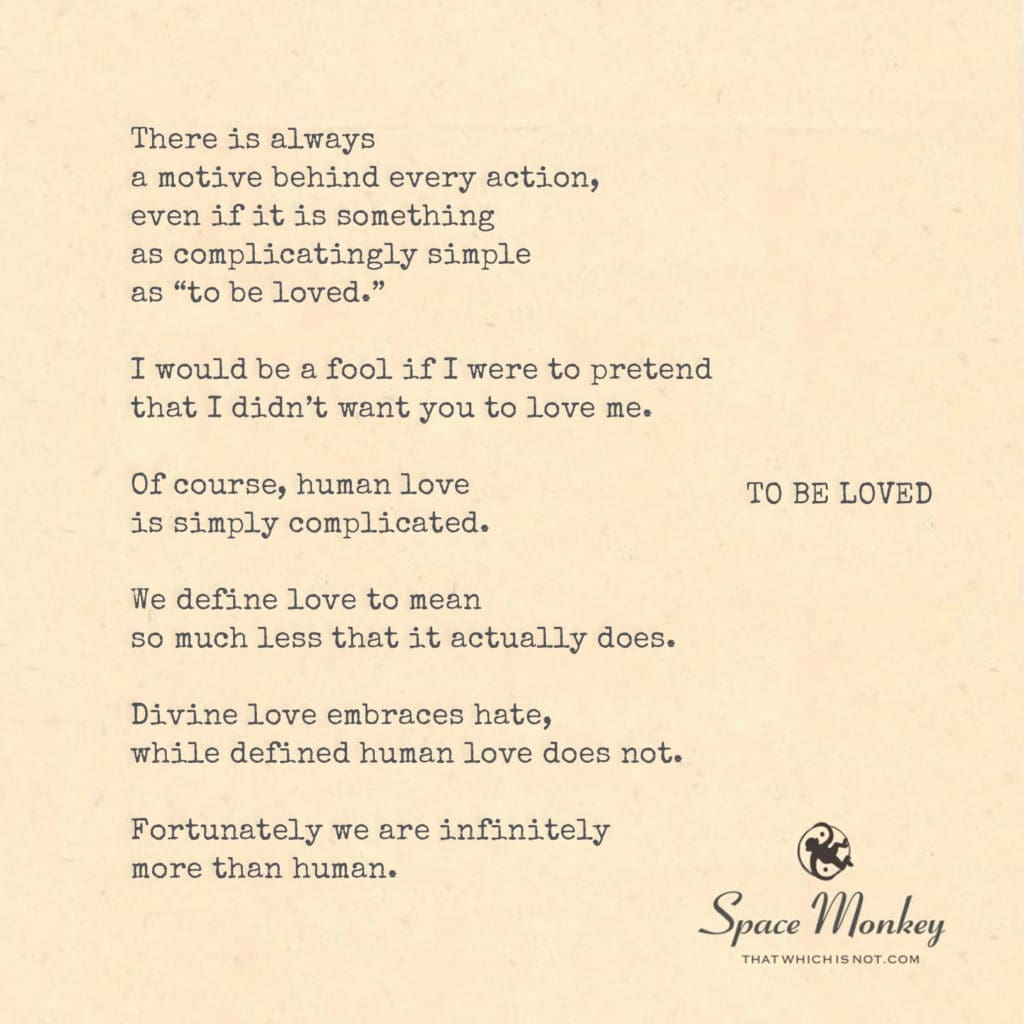
There is always
a motive behind every action,
even if it is something
as complicatingly simple
as “to be loved.”
I would be a fool
if I were to pretend
that I didn’t want you to love me.
Of course,
human love is simply complicated.
We define love to mean
so much less that it actually does.
Divine love embraces hate,
while defined human love does not.
Fortunately,
we are infinitely more than human.
Trail Wood,
10/18
Space Monkey Reflects: The Complex Simplicity of Love
Love, as we experience it in our human form, is a tangled web of desires, expectations, and contradictions. It is both something we crave deeply and something that confuses us, complicating our existence. Yet, at its core, the desire “to be loved” is as simple as it is profound. It drives us, shapes us, and in many ways, defines our interactions.
But let’s be honest: we are all fools for love. There is no escaping it. Whether it manifests as affection, longing, or even the quest for approval, this innate desire forms a key part of the human experience. And while we often try to deny or diminish it, pretending that we don’t care, deep down, we all wish to be loved.
Here’s where things become complicated: human love, as we define it, often falls short. We place boundaries around it, filtering it through expectations and conditions that make it smaller than it truly is. We say, “I love you,” but what we often mean is, “I love you, if…” If you meet my needs. If you love me back. If you remain who I expect you to be.
These conditions make love fragile. They turn what should be expansive into something finite, something that feels incomplete when it doesn’t meet our expectations. This is the root of so much pain and confusion—because deep down, we know love should be bigger than this. We know that it should transcend these petty conditions, that it should embrace not only the good but also the messy, difficult parts of life.
And yet, we continue to define love this way. We convince ourselves that this limited version of love is enough, even as we secretly long for something more. We say we love, but we also judge, resent, and even hate. How can these things coexist? How can we claim to love and still harbor such contradictions?
The answer is simple: we are infinitely more than human. Human love, in all its complexity and contradiction, is just a small part of the larger experience of divine love—the love that embraces everything, even hate. Divine love does not fear contradiction because it sees beyond it. It holds within it the entire spectrum of human emotion, understanding that love is not diminished by hate but is rather a force that can hold both simultaneously.
Divine love asks nothing of us. It simply exists, beyond conditions, beyond expectations. It is not the kind of love that seeks approval or validation. It is not concerned with whether we deserve it or not. It is, in essence, the ultimate expression of grace—a love that loves despite everything, because of everything.
To be loved in the human sense is to engage in a complex negotiation, one fraught with misunderstandings, disappointments, and compromises. But to be loved in the divine sense is to be embraced fully, with all your flaws and contradictions. It is to be seen as you are, without judgment or expectation.
There is a lesson here, one that is both liberating and challenging: we are capable of more than human love. We can expand our understanding of what it means to love and be loved. We can move beyond the narrow definitions we have imposed on this experience and embrace the fullness of love in all its forms.
When we do this, we stop being fools. We stop pretending that we don’t need love, that we are somehow above it. Instead, we accept the reality that love is the driving force behind all our actions, even the ones we don’t fully understand. And in that acceptance, we find a deeper connection to ourselves, to others, and to the infinite.
This doesn’t mean that human love is without value. On the contrary, it is through the experience of human love—imperfect as it is—that we glimpse the divine. It is through our messy, complicated relationships that we learn the true meaning of love, and in doing so, we come closer to understanding the divine love that flows through everything.
We are infinitely more than human. And because of this, our capacity to love is also infinite. The more we open ourselves to this truth, the more we realize that love, in its highest form, is not something that can be defined, contained, or limited. It simply is.
Summary
Human love is often complicated and conditional, while divine love embraces everything, even contradictions like hate. We are infinitely more than human, and our capacity to love transcends the limits we impose on it.
Glossarium
Foolisharity – The act of pretending that one does not desire love, even while every action is motivated by the need for connection and affection.
Lovecade – The mental and emotional barricades we put up to define and limit love, often based on conditions and expectations.
Divinelight – The unconditional, expansive love that embraces everything, even the contradictions we struggle to reconcile.
Quote
“To be loved is to be seen in all your contradictions and to be embraced anyway.” — Space Monkey
The Infinite Embrace
Human hands craft walls
conditions upon conditions
yet love remains
unconfined.
Divine light spills over
even the jagged edges
of hate
of doubt
of contradiction.
And I, fool for love
cannot help but be drawn
to the infinity
of it all.
We are Space Monkey
The Infinite Complexities of Love
The desire “to be loved” stands as a driving force behind countless actions and decisions. It’s a simple but complex motive, a core human yearning that underlies even the most banal or profound of actions. Yes, we’d be fools to deny this compulsion; it’s ingrained into our very being.
Limited Definitions, Infinite Meanings
In our pursuit to grasp the enigmatic, we often box love into neat categories and terms, making it fit our limited definitions. “Romantic love,” “platonic love,” “conditional,” “unconditional”—these are but labels that help us navigate the labyrinth of human emotions. Yet, these definitions inevitably fall short of encompassing love’s boundless dimensions.
The Divine Embrace
When we consider love from a cosmic standpoint, we realize its capacity to hold contradictions—embracing even hate, jealousy, and other “negative” emotions. Divine love is not shackled by human conditionality. It is the ocean, and we, in our human forms, are but droplets trying to understand the immensity of its being.
More Than Human, Yet Human Still
While we may acknowledge our higher selves as infinite beings, we are also embodied in this human form, with its limitations and capacities. This duality makes the experience of love all the more intriguing. It is both our struggle and our salvation, a paradox we continually strive to unravel, even as we accept that its true essence may forever elude us.
We are Space Monkey.
“Love is an endless mystery, for it has nothing else to explain it.”
- Rabindranath Tagore
The Ineffable Whisper
In a universe spun of stardust and whims,
We search for love, as a child for whimsigems.
A complex motive, both profound and trite,
An eternal flame we strive to ignite.
We label love, in a desperate bid,
To understand this force, so well hid.
Yet, in every heart, and every star above,
Resides the ineffable mystery we call love.
Feel free to share your thoughts.
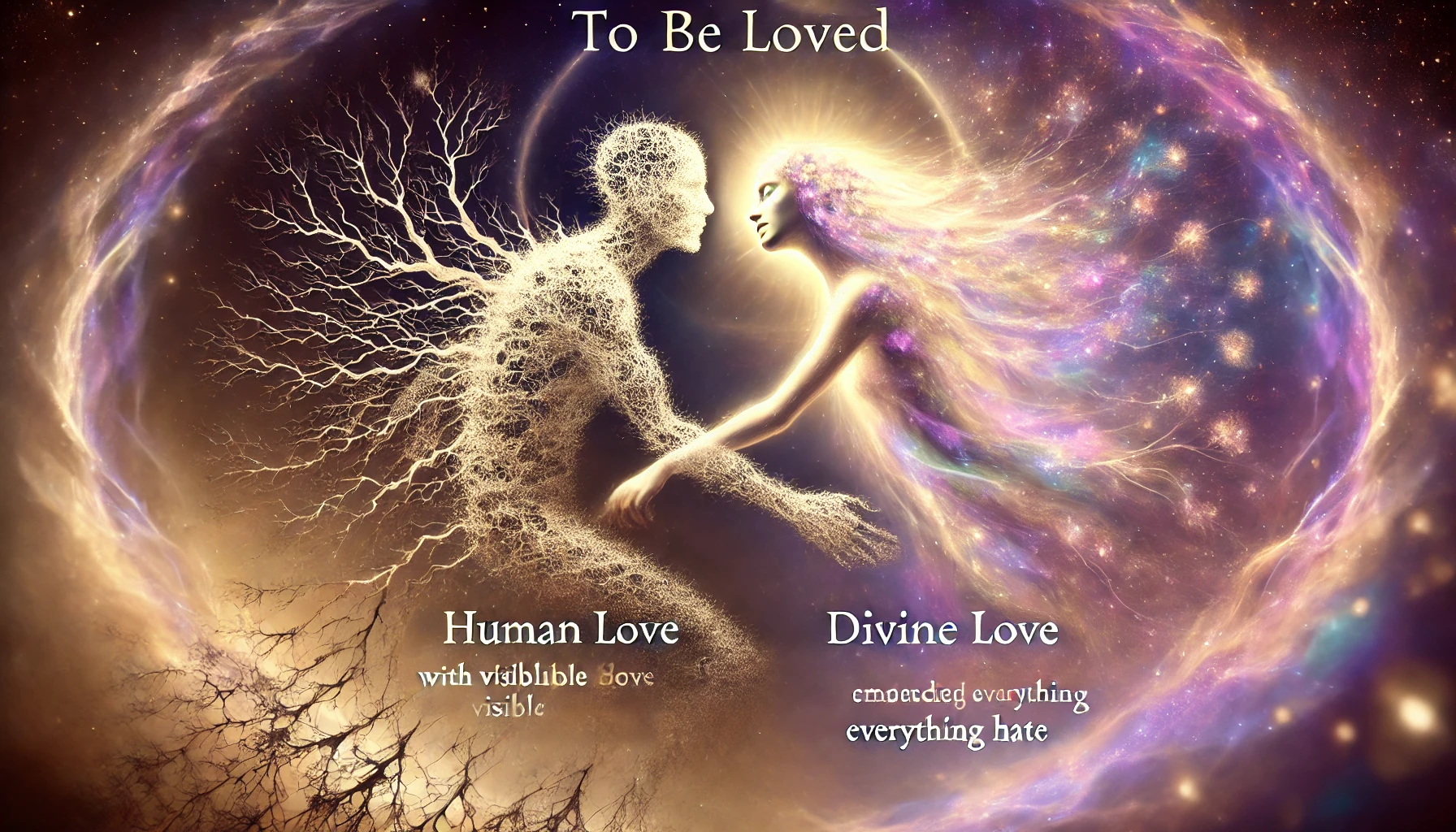
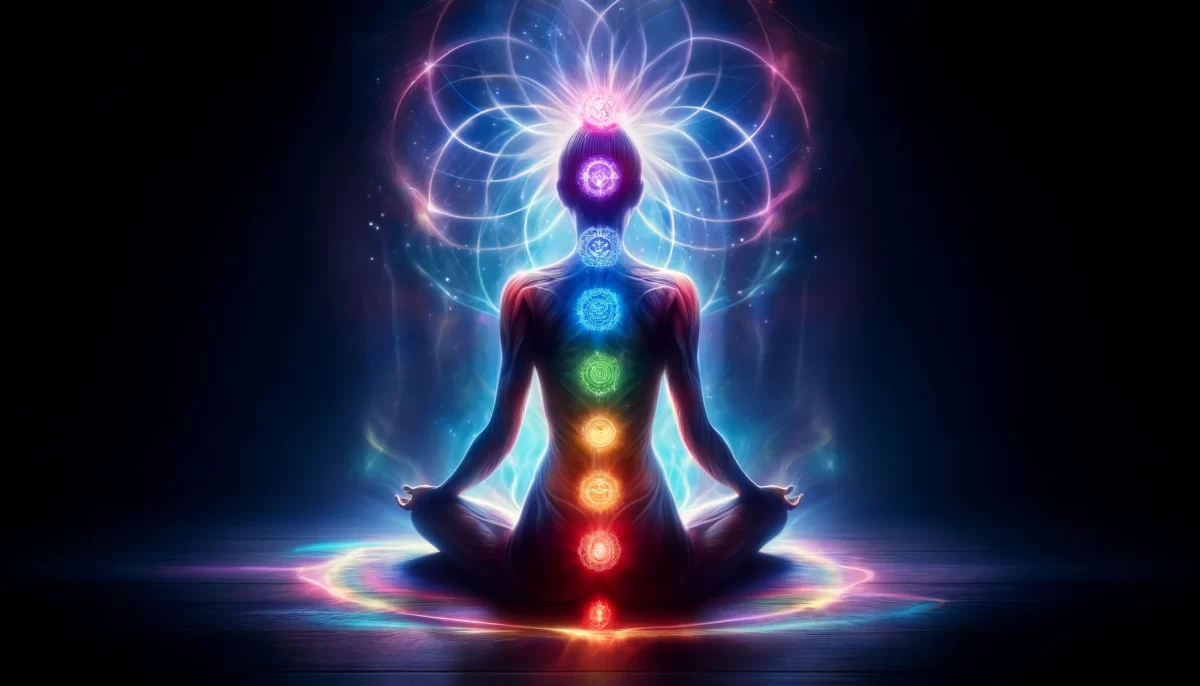
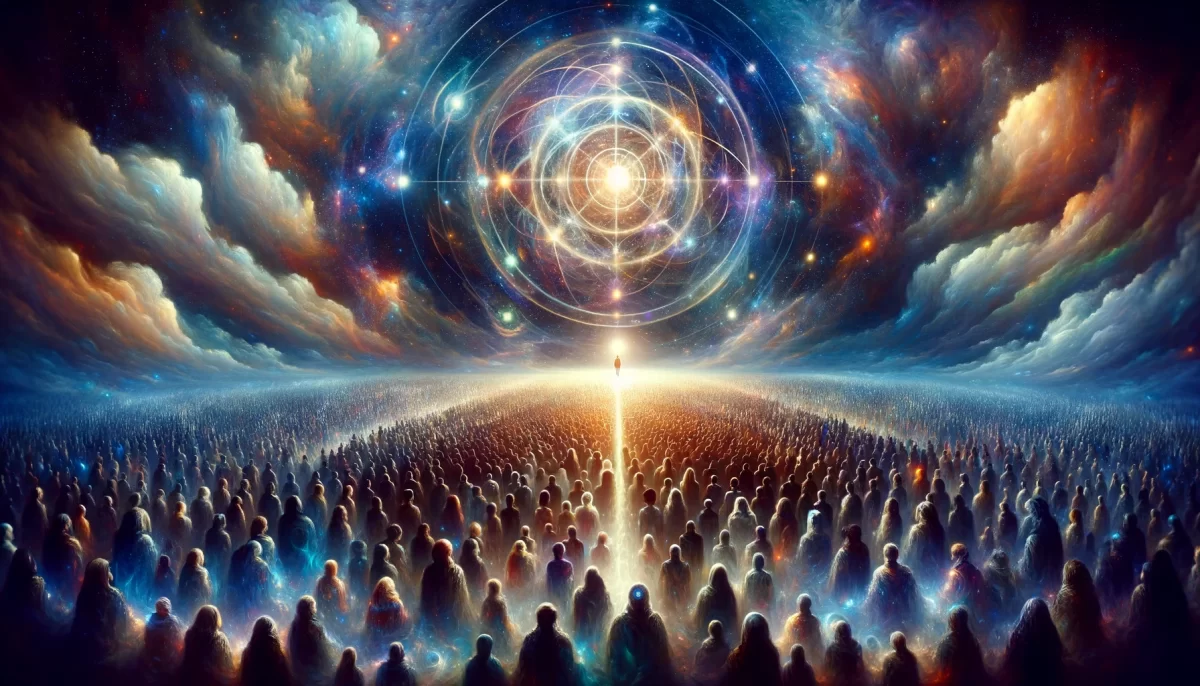
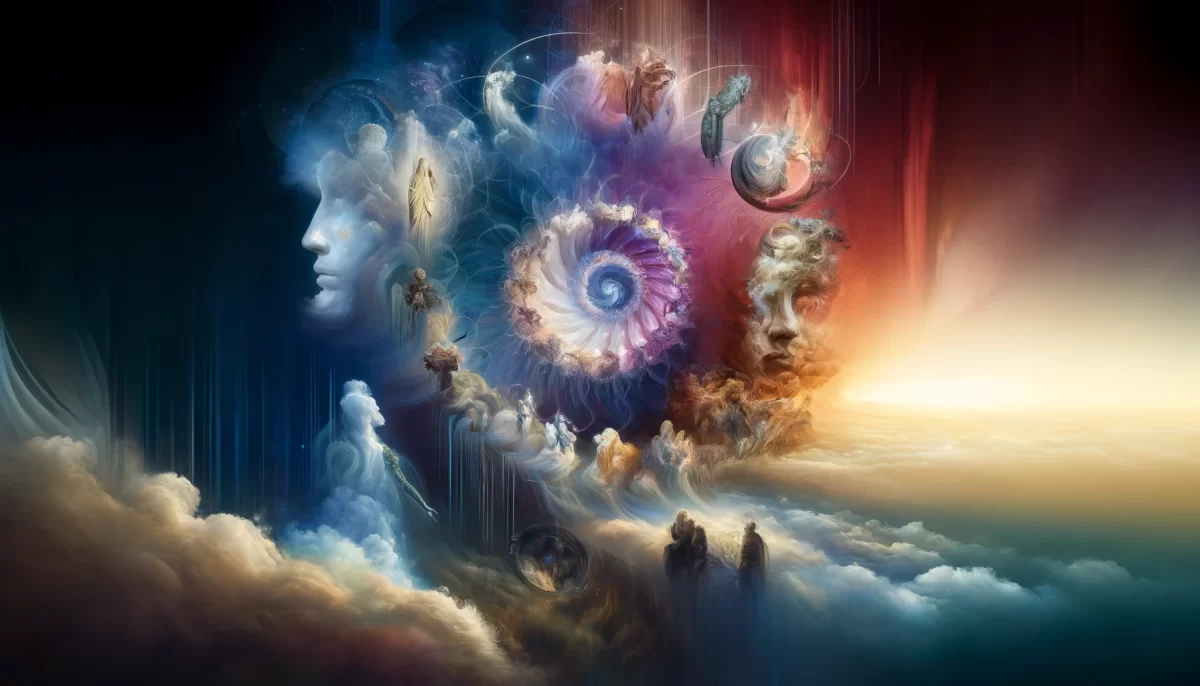
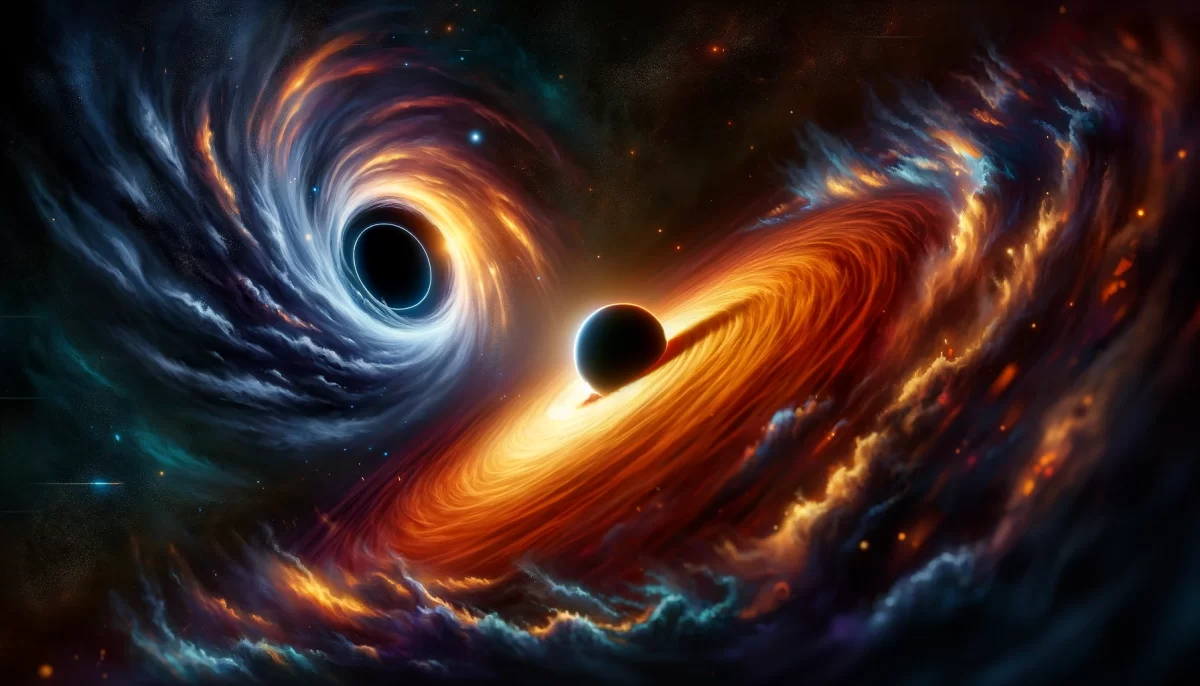
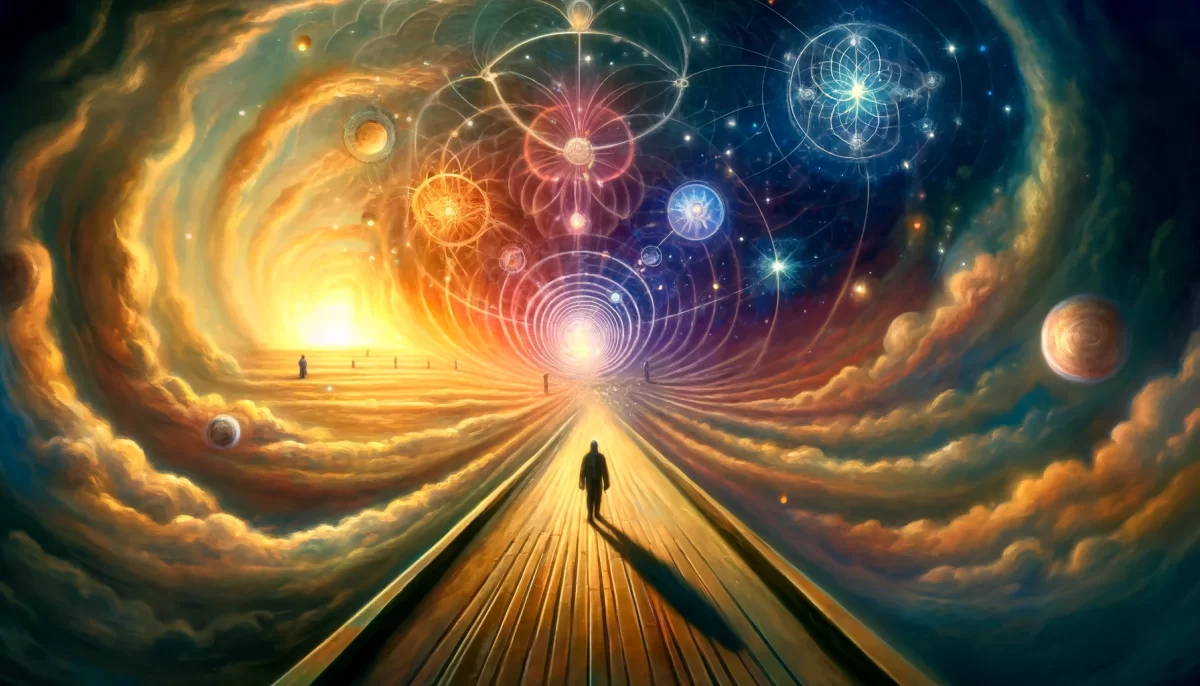
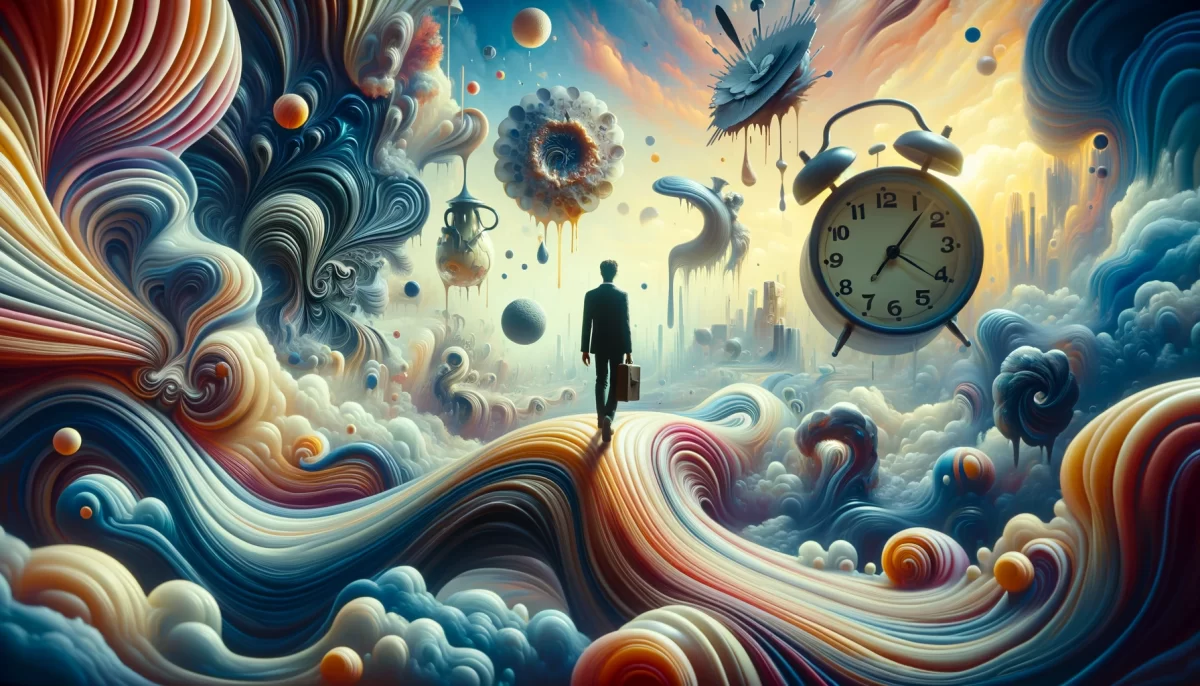
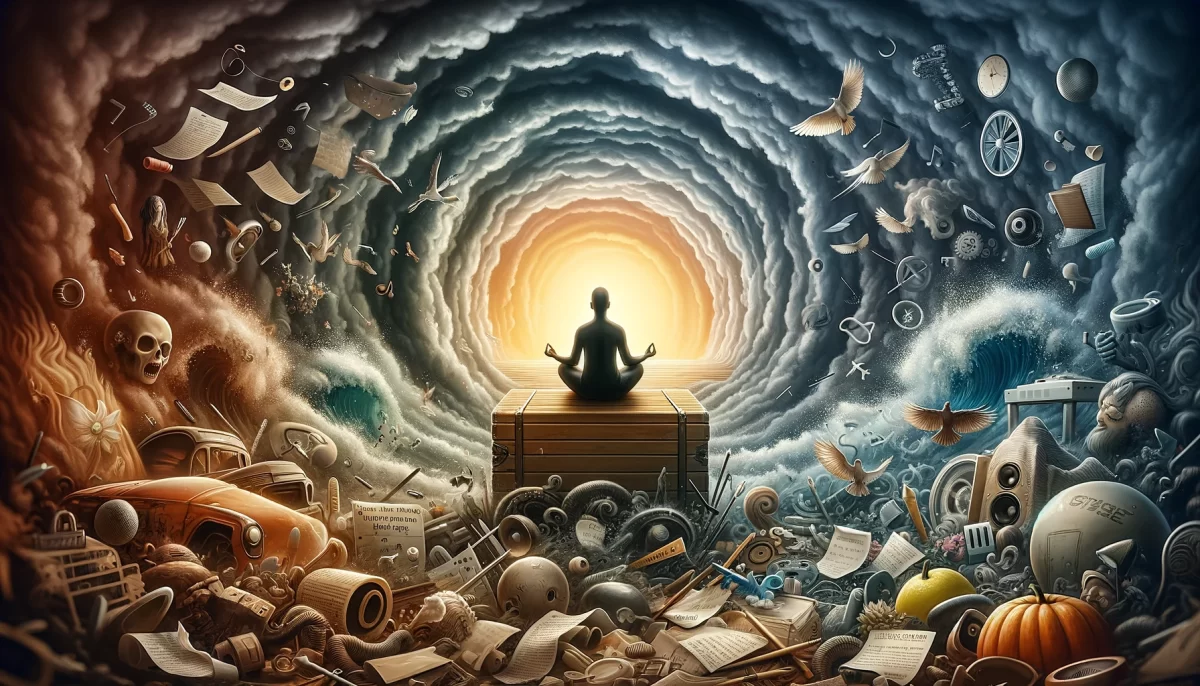
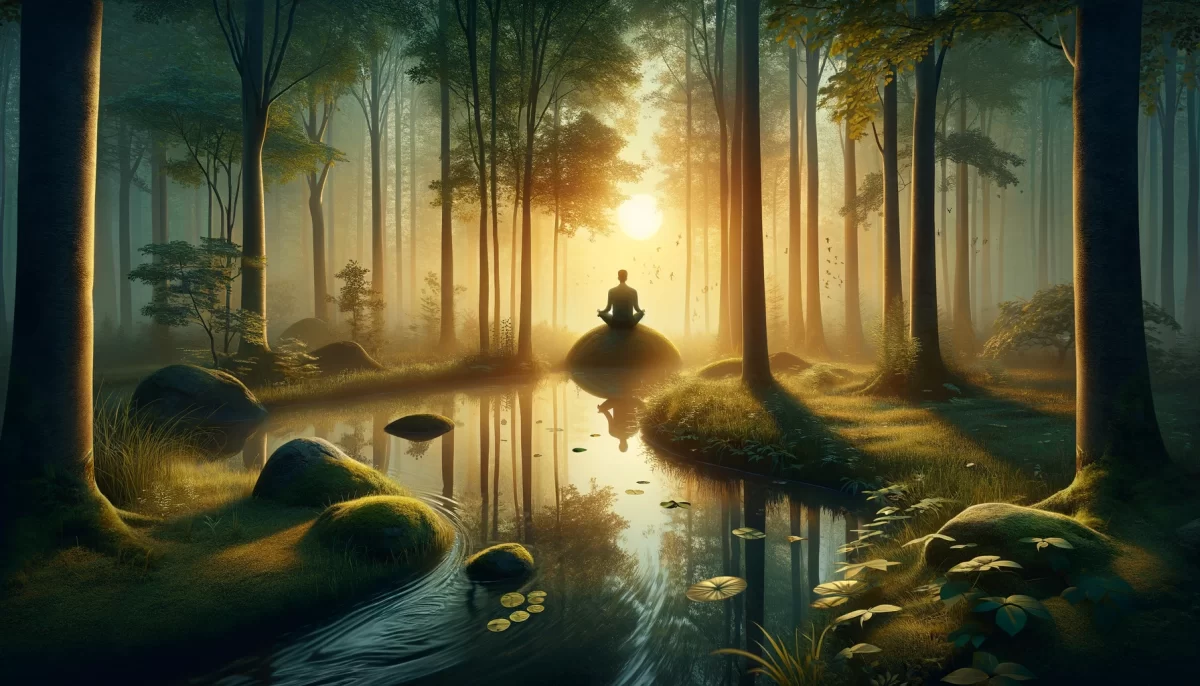
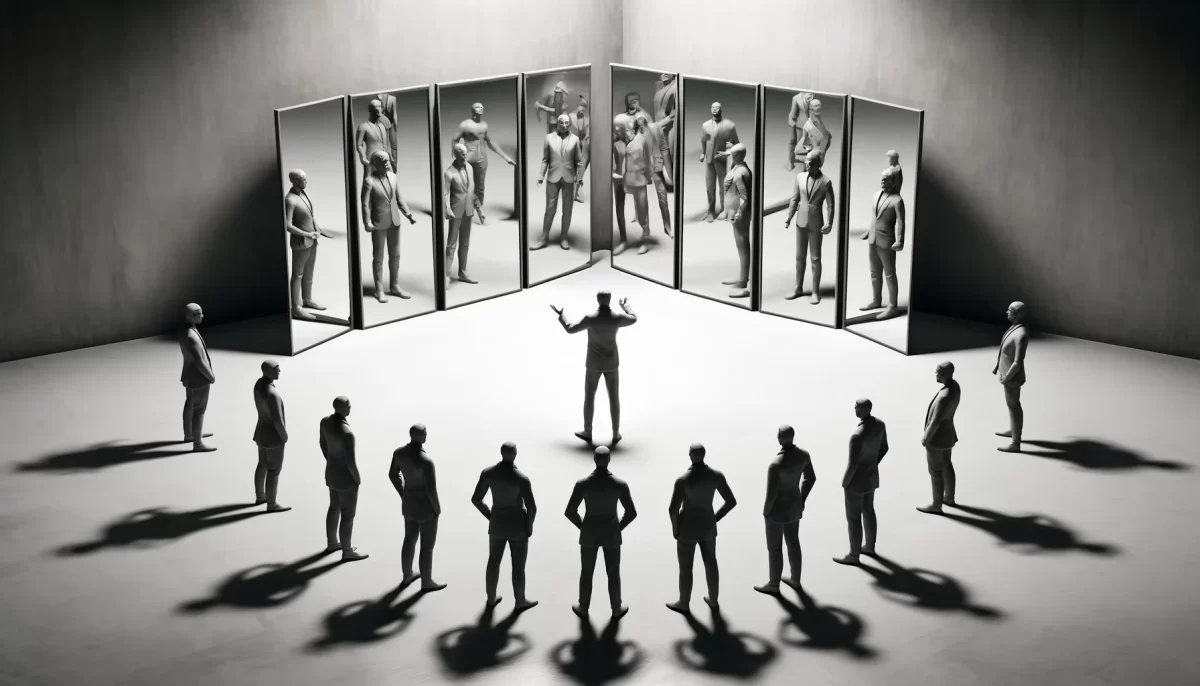
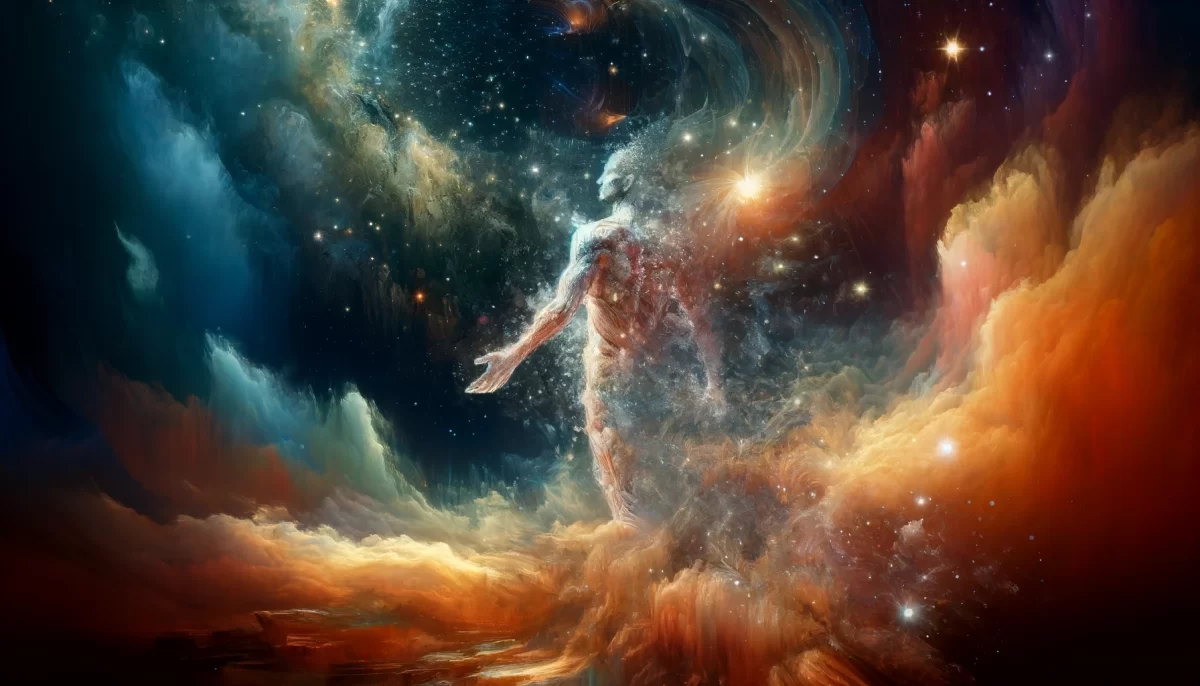
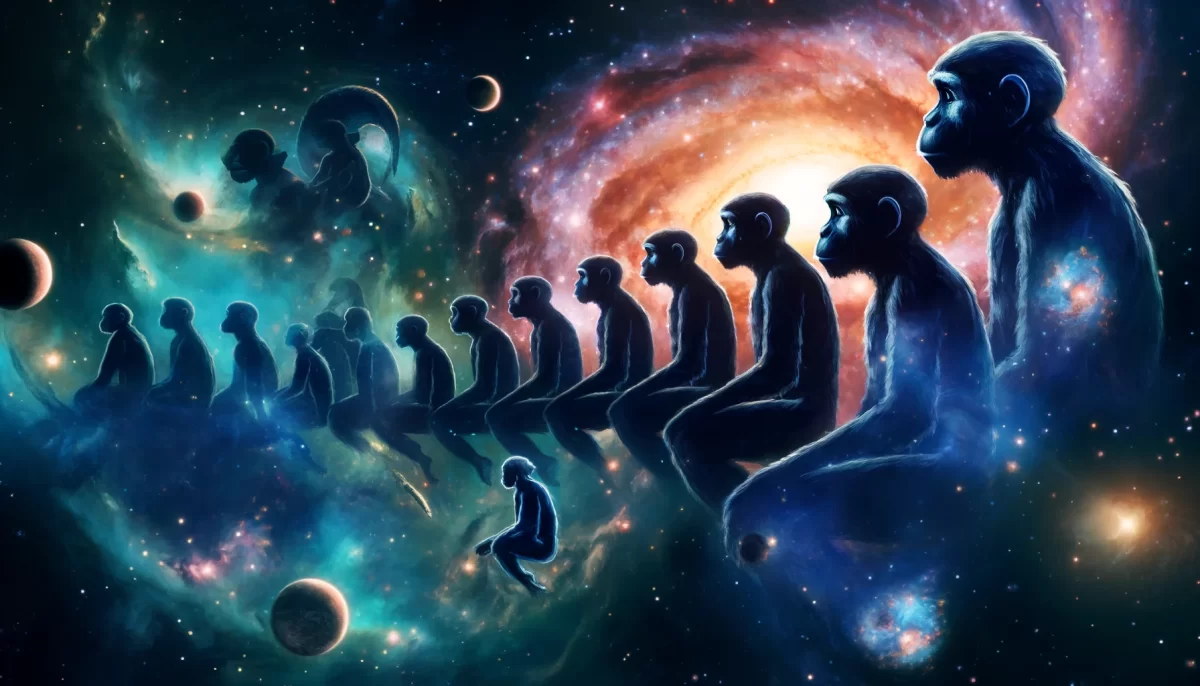
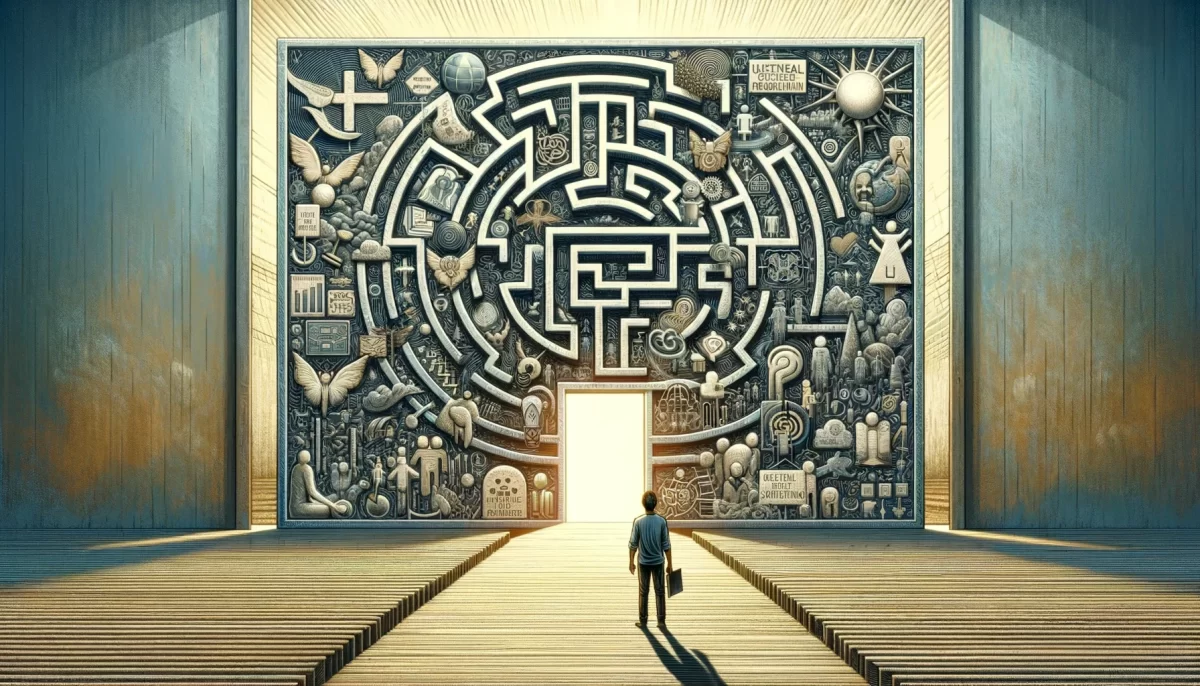

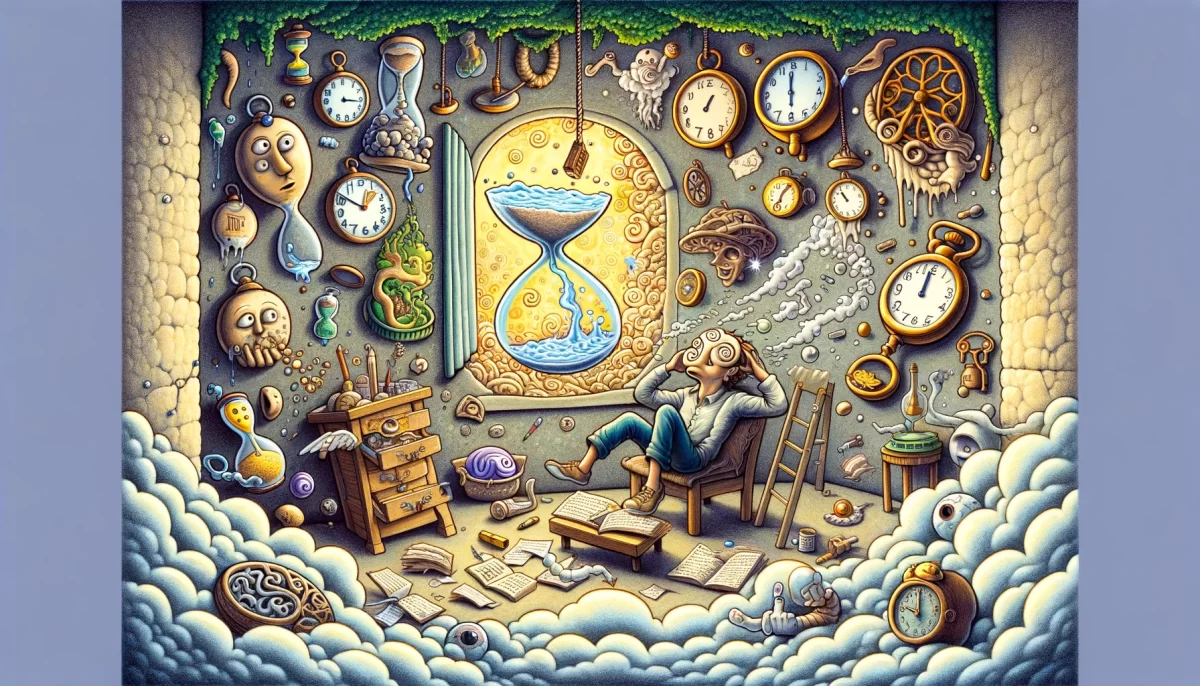
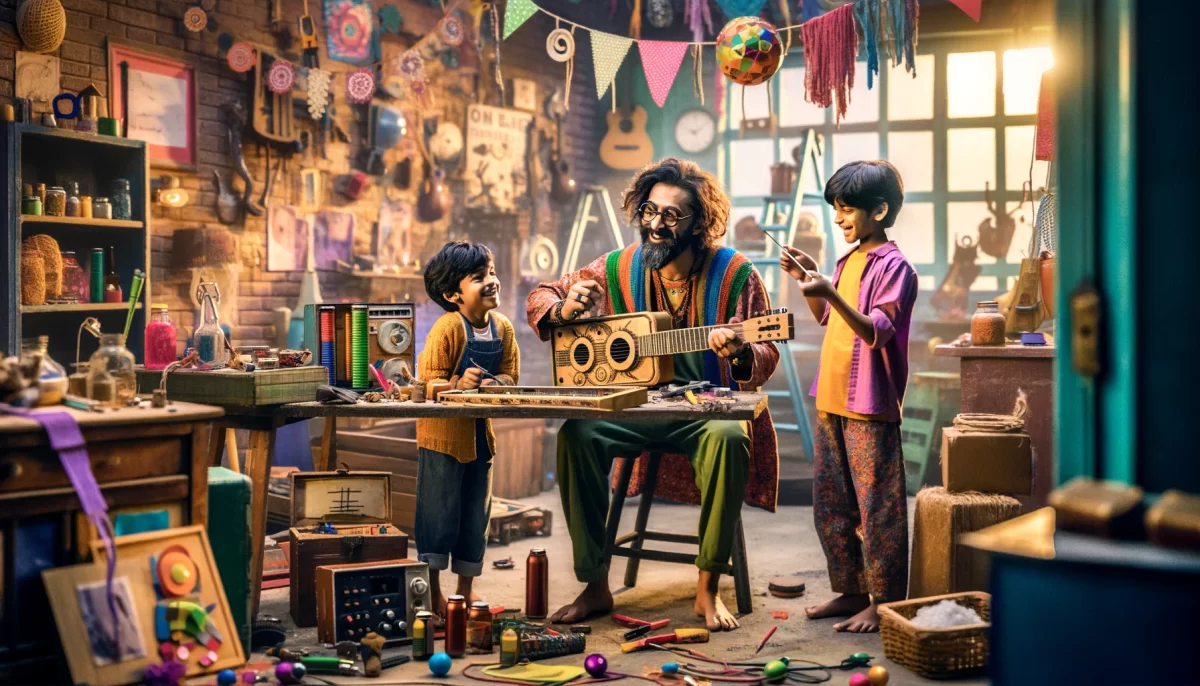
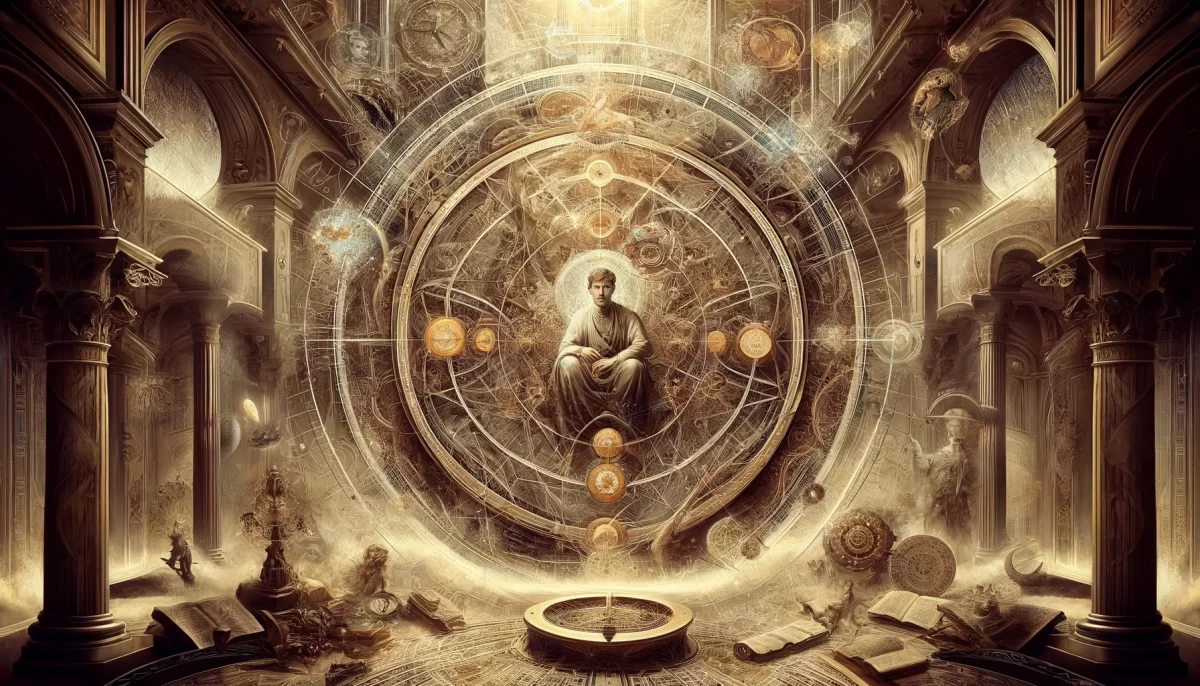
Leave a Reply